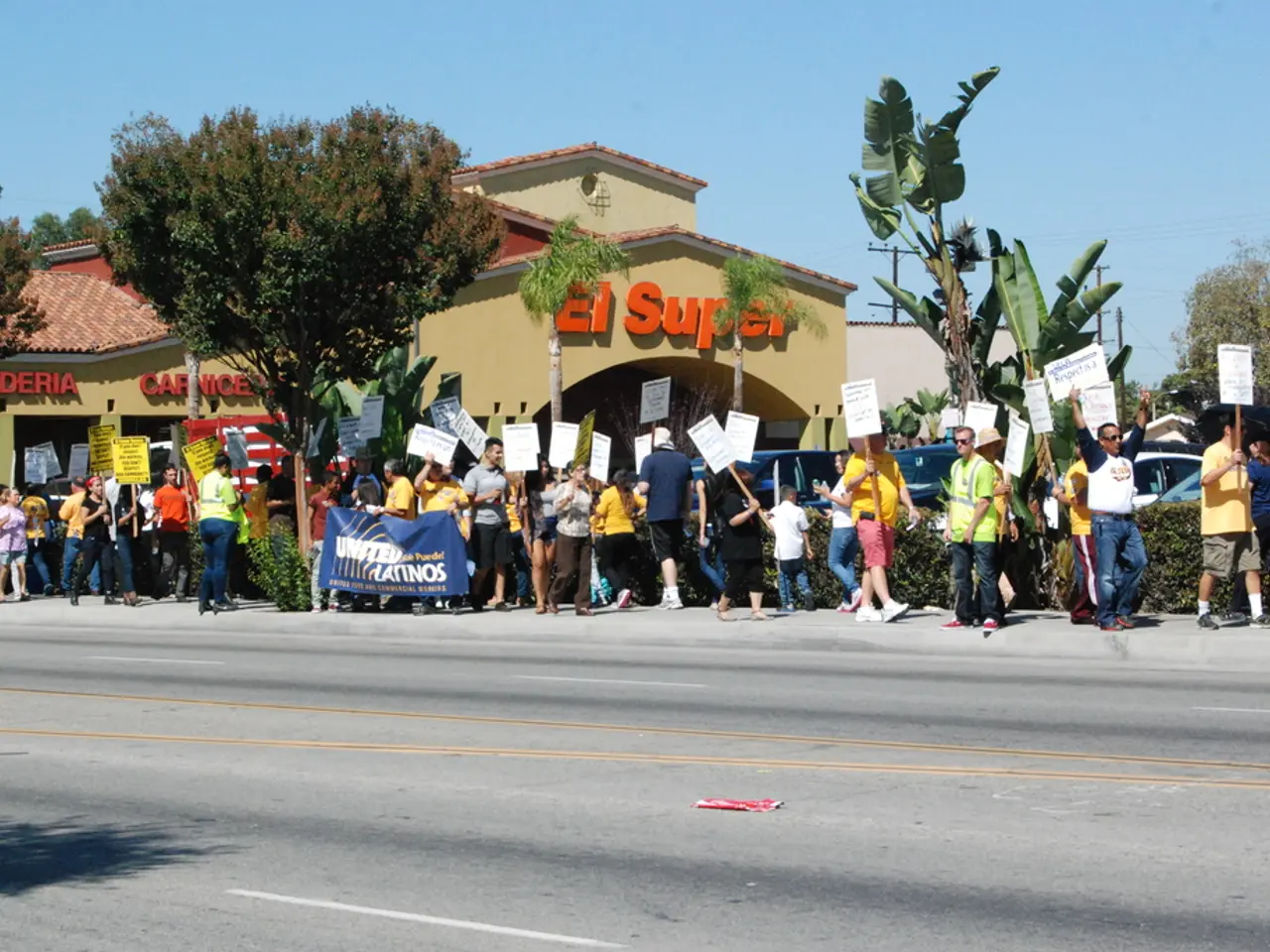Swift Decision: End to Family Reunification Program, Accelerated Citizenship Process Shelved - Government Decision: Family Reunification, Expedited Naturalization Process
The newly formed black-red coalition government has initiated stricter immigration policies, with two draft bills approved in Berlin by Federal Interior Minister Alexander Dobrindt (CSU) aimed at tightening family reunification and fast-track citizenship for certain immigrants. These proposals, pending approval from the Bundestag, would significantly affect refugees with subsidiary protection status.
Approximately 388,074 subsidiarily protected individuals resided in Germany at the end of March 2021, according to data obtained by the news agency DPA. Three-quarters of this group hail from Syria, as stated in a federal government response to a question from the Left Party.
Under the proposed changes, the opportunity for family reunification will be limited to spouses, registered partners, and minor children, with refugees barred from bringing relatives to Germany for a two-year period. Exceptions will be made for hardship cases, although the draft bill does not define their criteria.
Family reunification for refugees without asylum status temporarily halted between March 2016 and July 2018, due to the intention to prevent overwhelming the intake and integration process. Since August 2018, 1,000 family members per month have been allowed to enter as relatives of those with subsidiary protection status, totaling 12,000 per year. In comparison, a total of 229,751 first asylum applications were filed in Germany in 2020.
Less than eight percent of all family reunification visas issued between 2018 and 2024 were for relatives of subsidiarily protected persons. Family reunification is also available to other immigrants such as foreign skilled workers.
Dobrindt stressed the importance of reducing pull factors to Germany, stating that the migration policy in the country had changed. The reform aims to reintroduce the "limitation" as an explicit target in residence law, as the fast-track citizenship for particularly well-integrated immigrants after three years will also be rescinded.
Human rights organizations have criticized the move, warning of negative psychological impacts and the potential for increased irregular migration. Herbert Brücker, a migration and labor market expert from the Institute for Employment Research (IAB) of the Federal Employment Agency, expressed skepticism, noting that separation from family can hinder integration and that the acquisition of citizenship generally has a positive effect on the labor market.
The Center for Integration and Migration (SVR) welcomed the decision, stating that it corrects the impression of overly easy access to German citizenship. The reversal of accelerated naturalization has faced criticism from migration experts, as it primarily affects highly qualified individuals who are actively sought in Germany's labor market.
[Note: Subsidiary protection is a form of humanitarian protection granted to individuals who do not qualify for full refugee status under the Geneva Convention but cannot be returned to their home countries due to serious threats such as war, torture, or the death penalty.]
- The new community policy of the black-red coalition government, as outlined by Federal Interior Minister Alexander Dobrindt, includes stricter employment policies towards immigrants, aiming to limit family reunification and fast-track citizenship.
- Human rights organizations have voiced concerns over the proposed changes in the policy-and-legislation arena, fearing potential negative psychological impacts and increased irregular migration, while emphasizing the importance of family reunification and accelerated naturalization for integration and the labor market.
![Suspect Arrested for Alleged Cyberstalking: Details on the Charges Against [Suspect's Name] and Their Purported Victim's Ordeal](https://asb-media.info/en/img/20250531175109_image-description-headline-here.jpeg)








